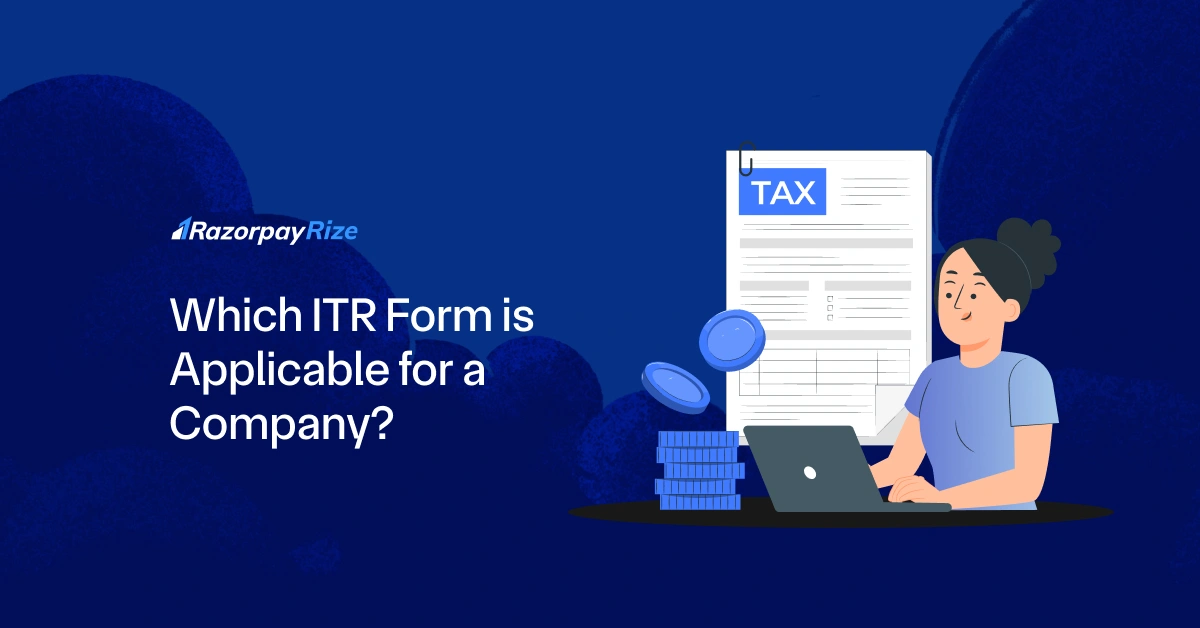Maharashtra, India’s financial and entrepreneurial powerhouse, is home to thousands of thriving small and medium businesses. For entrepreneurs looking to start a business with trusted associates, registering a partnership firm in Maharashtra offers an excellent balance of simplicity, flexibility, and legal credibility.
Under the Indian Partnership Act, 1932, a partnership firm is formed when two or more individuals collaborate to conduct business with a common goal of sharing profits and losses. Completing the registration process in Maharashtra ensures your firm operates with legal recognition and trust in the eyes of clients, banks, and authorities.
In this blog, we’ll cover everything you need to know about Partnership Firm Registration in Maharashtra- from eligibility and documents to online and offline procedures and key benefits.
Table of Contents
What Is Partnership Firm Registration in Maharashtra?
Partnership firm registration in Maharashtra is the legal process of formalising a business established by two or more partners under the Indian Partnership Act, 1932.
By registering, a partnership firm gains:
- Legal recognition allowing it to operate officially and enter into contracts.
- Protection in disputes, enabling the firm to sue or be sued in its registered name.
- Enhanced credibility with clients, investors, and financial institutions.
- Access to financial services, such as business loans and current bank accounts.
Elements of a Partnership Firm in Maharashtra
Every partnership firm in Maharashtra is defined by five essential elements that shape its structure and functioning:
- Formal Contract: The partnership must arise from a valid contract, not from birth or status. This contract is recorded in the Partnership Deed.
- Limited Membership: A partnership must have at least two partners and can have a maximum of 50 partners (as per the Companies Act, 2013).
- Conducting a Business: The firm must be engaged in lawful business activities, not charitable or social objectives.
- Sharing of Profits: Partners must agree to share profits and losses as per the terms of the partnership deed.
- Mutual Agency: Each partner acts as both an agent and principal, meaning they can bind the firm and be bound by the actions of other partners.
Eligibility Criteria for Partnership Firm Registration in Maharashtra
To register a partnership firm in Maharashtra, the following eligibility requirements must be met:
- Minimum two partners are required to form the firm.
- All partners must be legally competent to contract (i.e., 18 years or older, of sound mind, and not disqualified by law).
- Partners are typically Indian residents, though NRIs can join with approval.
- All partners must agree on roles, duties, capital contributions, and profit-sharing ratios as outlined in the Partnership Deed.
- The firm must have a registered office address in Maharashtra.
Required Documents for Maharashtra Partnership Firm Registration
Here’s the list of essential documents required to register a partnership firm in Maharashtra:
- Partnership Deed (executed on stamp paper)
- Proof of business address (rent agreement, electricity bill, or ownership proof)
- PAN cards of all partners
- Identity and address proof of partners (Aadhaar, Voter ID, Passport, or Driving License)
- Passport-size photographs of all partners
- Firm PAN card (can be applied after the deed execution)
- Affidavit or NOC from the property owner (if applicable)
All documents must be signed and submitted to the Registrar of Firms, Maharashtra, for verification.
Related Read: Documentation required for Registering Partnership Firm in India
Partnership Firm Registration Process in Maharashtra
The registration of a partnership firm in Maharashtra involves the following step-by-step process:
- Draft the Partnership Deed: Clearly define firm details, partner roles, profit-sharing ratio, and business activities.
- Prepare Documents: Collect all required proofs for partners and the business address.
- File Form A: Fill out and sign Form A, the official registration application form.
- Submit Application: Submit the form along with the partnership deed and supporting documents to the Registrar of Firms.
- Pay Registration Fees: Pay the prescribed government fees and stamp duty.
- Verification by Registrar: The Registrar reviews the documents and may request clarifications if needed.
- Receive Registration Certificate: Once approved, the Registrar issues the Certificate of Registration, officially recognising the firm.
Partnership Firm Registration Online in Maharashtra
Entrepreneurs can now easily complete partnership firm registration online in Maharashtra.
The online process offers convenience and transparency through:
- Digital submission of documents
- Online payment of registration fees
- Real-time application tracking
Applicants can register through the Maharashtra Government’s official business portal or with the assistance of professional consultants who simplify the process end-to-end.
Partnership Firm Registration Offline in Maharashtra
For those who prefer the traditional offline route, registration can also be done manually. Steps for offline registration include:
- Print and complete Form A with all firm details.
- Attach the Partnership Deed and required documents.
- Submit the application to the Registrar of Firms at the local district office.
- Pay the registration fees via Demand Draft (DD) or Treasury Challan.
- Once verified, collect the Certificate of Registration in person.
Partnership Deed Registration in Maharashtra
Registering the Partnership Deed is a critical part of the process in Maharashtra.
The deed legally outlines:
- Names and addresses of partners
- Nature and name of the business
- Capital contribution and profit-sharing ratio
- Duties, powers, and responsibilities of partners
- Procedure for adding or removing partners
- Dispute resolution methods
Once signed and notarised, the deed must be submitted to the Registrar of Firms for formal registration, giving it legal validity under the Indian Partnership Act, 1932.
Read More: Partnership Deed for Firms in India
GST Registration for Partnership Firms in Maharashtra
If your partnership firm’s annual turnover exceeds ₹40 lakh (for goods) or ₹20 lakh (for services), GST registration becomes mandatory in Maharashtra.
Benefits of GST registration include:
- Legal compliance under the Goods and Services Tax Act
- Ability to collect and remit GST on sales
- Eligibility to claim Input Tax Credit (ITC)
- Enhanced credibility with clients and vendors
GST registration can be easily obtained online through the GST portal or via authorised consultants.
Benefits of a Partnership Registration in Maharashtra
Registering a partnership firm in Maharashtra offers numerous benefits that support growth and legal protection:
- Legal Recognition: Operate officially under the Indian Partnership Act, 1932.
- Enhanced Credibility: Builds client, vendor, and banking trust.
- Simplified Compliance: Easier to manage compared to companies or LLPs.
- Flexible Structure: Partners can easily modify profit-sharing ratios and roles.
- Dispute Protection: The registered deed offers enforceable legal rights.
- Access to Financial Services: Enables opening of business accounts and loan applications.
Frequently Asked Questions (FAQs)
Private Limited Company
(Pvt. Ltd.)
- Service-based businesses
- Businesses looking to issue shares
- Businesses seeking investment through equity-based funding
Limited Liability Partnership
(LLP)
- Professional services
- Firms seeking any capital contribution from Partners
- Firms sharing resources with limited liability
One Person Company
(OPC)
- Freelancers, Small-scale businesses
- Businesses looking for minimal compliance
- Businesses looking for single-ownership
Private Limited Company
(Pvt. Ltd.)
- Service-based businesses
- Businesses looking to issue shares
- Businesses seeking investment through equity-based funding
One Person Company
(OPC)
- Freelancers, Small-scale businesses
- Businesses looking for minimal compliance
- Businesses looking for single-ownership
Private Limited Company
(Pvt. Ltd.)
- Service-based businesses
- Businesses looking to issue shares
- Businesses seeking investment through equity-based funding
Limited Liability Partnership
(LLP)
- Professional services
- Firms seeking any capital contribution from Partners
- Firms sharing resources with limited liability
Frequently Asked Questions
Can a partnership company be formed online in Maharashtra?
Yes, you can form and register a partnership firm online in Maharashtra. The state government allows entrepreneurs to complete the entire process digitally, making it convenient and time-efficient.
Is partnership firm registration mandatory in Maharashtra?
No, registration of a partnership firm is not mandatory under the Indian Partnership Act, 1932, even in Maharashtra. However, registration is highly recommended because it provides your firm with:
- Legal recognition to operate officially
- The right to enforce claims in court
- Improved credibility with clients, banks, and investors
- Easier access to loans and government registrations like GST
How to Register a Partnership Firm Renewal in Maharashtra?
If a registered partnership firm in Maharashtra needs to renew or update its registration, the partners must follow these steps:
- Review the existing partnership deed and identify any changes (like partners, address, or business activity).
- Draft an amended deed reflecting the new details.
- Submit an application to the Registrar of Firms, Maharashtra, along with:
- Copy of the amended partnership deed
- Form A (for registration changes)
- Applicable government fees
- The Registrar verifies the changes and issues a renewed or updated registration certificate.
If the firm’s registration has lapsed or remained unregistered, it can still be regularised or newly registered by following the standard registration process.
Can a partnership firm register for GST in Maharashtra?
Yes, a partnership firm in Maharashtra can and must register for GST if its annual turnover exceeds the prescribed threshold:
- ₹40 lakh for goods-based businesses
- ₹20 lakh for service-based businesses








%20Business%20Model.webp)







